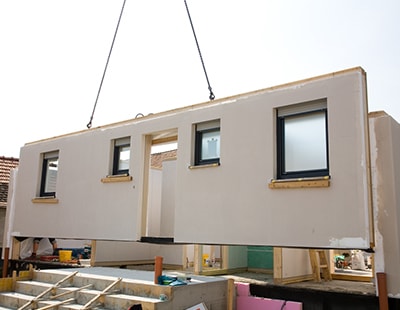
The pandemic has had a major impact on our lives and the global economy. Our beloved property sector was by no means an exception and vendors were facing extensive delays to their property sales and, in the worst-case scenario, saw the property sale fall through completely. A costly experience as the HomeOwners Alliance, a lobby group, has previously calculated for The Times newspaper that the cost of each sale that falls through averages £2,727 in lost fees and charges for conveyancing, surveys and searches.
During the height of the pandemic, many surveys were put on hold, with the government advising that surveyors should not carry out non-urgent surveys and no inspections should take place if any person in the property is showing symptoms or self-isolating. It was also not uncommon for borrowers to have to wait 40 days to get a formal mortgage offer from their bank or building society. A stark change from the usual three to four weeks waiting time.
At the same time, however, the demand for properties reached unprecedented levels. The stamp duty holiday, introduced in July 2020, boosted buyer appetite to move home, whilst lockdowns prompted many people to re-evaluate their living situation altogether and join the search for more space. According to Rightmove, the UK’s housing market witnessed 47% more sales agreed in the second half of 2020 than the same period in 2019, further contributing to a congested sales pipeline.
With the world slowly returning to some form of normality, the pandemic’s impact was more than a wake-up call for the property industry. If the sales process is this fragile and can be delayed this easily, what can we do to make it fundamentally easier and faster going forward?
An important step, which was also highlighted by the Government’s Levelling Up White Paper, is an emphasis on digitalisation by making Home Information Packs (HIPs), or logbooks, a standardised tool for any property sale.
Nigel Walley, Chair of the Residential Logbook Association (RLBA), says: “Vendors should be doing much more to get their documents in order before they go to market and digital logbooks are a way to do that. They enable people to collect and share digital information about their homes including ground rent, utility bills, Land Registry data, planning permissions and transaction history to make the buying process more transparent.”
“Logbooks can go much further than their current use. We can support data that’s required to help evaluations of properties which will be useful for mortgage and insurance purposes. Our members are also working with local authorities to discuss the integration of logbooks for their portfolios. On top of this, logbooks help build a catalogue of the property’s contents, creating a useful record that grows over time. Should the owner decide to sell up or re-mortgage, all information is available at their fingertips.”
Already, the government’s paper has led to many vendors wanting to incorporate logbooks and digital solutions into their projects. Going forward, our team at Virtual Viewing foresees the requirement for these to only get stronger across the whole of the property industry with particular demand from investors and vendors as well as housebuilders, developers and estate agents.
The RLBA is witnessing growing uptake of its members’ services. To meet the demand, the organisation confirms continuous growth plans by extending its network into different client areas. Virtual Viewing is the body’s latest member and we are delighted to raise further awareness of the positive impact logbooks can have on the industry.
Walley concludes: “We are delighted to welcome Virtual Viewing to our organisation. Having a member on board that can help lead the advocacy in a specific industry field such as BIM will be a valuable addition to our service offering. We are also keen for logbooks to be picked up by the new-build housing sector and Virtual Viewing’s experience in large residential blocks will be highly beneficial.”
Founded in 2004, Virtual Viewing is an award-winning studio that’s behind innovations such as 3D virtual tours – an essential tool for today’s property sector, particularly since the pandemic. The company was one of the first businesses outside the US to secure a QTVR development licence.
With offices in the UK and Europe, Virtual Viewing’s team specialises in creating advanced computer-generated images, architectural and construction models, animations and the use of BIM for a range of apps that offer one-stop solutions for today’s property and construction sector. For more details on Virtual Viewing, please visit www.virtualviewing.co.uk.
*Stewart Bailey is the director of Virtual Viewing









.png)

.jpg)








Join the conversation
Be the first to comment (please use the comment box below)
Please login to comment